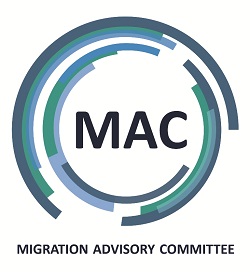Key Takeaways:
- Expanding MAC’s Influence: The UK government is significantly strengthening the Migration Advisory Committee (MAC) to address challenges associated with rising net migration.
- Leadership Enhancements: Professor Brian Bell will become the full-time Chair in January 2025, and Dr. Madeleine Sumption has been appointed as Deputy Chair.
- Strategic Staffing: Additional personnel will join MAC, enhancing its ability to forecast and provide evidence-based recommendations.
- Government’s Plan for Change: The reforms are part of a broader strategy to reduce reliance on foreign labor and prioritize domestic talent.
- Economic and Social Balance: The initiative aims to align immigration policies with the country’s economic growth and workforce needs.
The UK government has made immigration reform a cornerstone of its policy agenda, recognizing the pressing need to balance economic needs with sustainable migration practices. At the heart of this reform is the expansion of the Migration Advisory Committee (MAC), a body central to shaping evidence-based immigration policies.
A Leadership Overhaul
From January 2025, Professor Brian Bell, who currently leads the MAC, will transition to a full-time role. This change reflects the government’s commitment to reinforcing the committee’s capacity to address rising migration challenges. His term will run until the end of 2026, providing consistent and focused leadership. Complementing this change, Dr. Madeleine Sumption has been appointed Deputy Chair, dedicating more time to her role to enhance the committee’s strategic direction.
Building Analytical Capacity
One of the most significant changes is the expansion of MAC’s staffing. The committee will now have a robust team of experts capable of forecasting migration trends with greater precision. This enhancement ensures MAC can provide the government with independent, data-driven recommendations that not only address current issues but also anticipate future challenges.
The growing role of MAC aligns with the government’s broader Plan for Change, which seeks to reduce net migration. Recent figures from the Office for National Statistics (ONS) revealed that net migration has quadrupled in just five years, driven by unprecedented levels of overseas recruitment. These statistics underscore the urgency of the reforms, as unchecked migration trends could strain public services and local communities.
Reducing Reliance on Overseas Labor
Central to the reforms is a shift in focus from international recruitment to fostering local talent. This initiative involves close collaboration between MAC and key government bodies such as Skills England, the Department for Work and Pensions, and the Industrial Strategy Council. Together, these entities aim to ensure that immigration policies support domestic workforce development, reducing dependency on foreign labor and creating sustainable growth opportunities.
The Plan for Change emphasizes a joined-up approach that connects immigration policies with education and labor market strategies. By doing so, the government aims to create a system that supports economic growth while addressing the needs of local communities. As Seema Malhotra, Minister for Migration and Citizenship, stated:
“Net migration has quadrupled in the past five years, and we are determined to restore order to our broken immigration system. The independent Migration Advisory Committee will play a central role, providing impartial analysis to underpin our approach to linking skills, migration, and labor market policy.”
What This Means for Businesses and Individuals
For UK businesses, these changes signal a critical shift. Companies that previously relied on international talent must now pivot to training and investing in the local workforce. While this may present challenges, it also creates opportunities for innovation and the cultivation of homegrown expertise.
For individuals, particularly those considering migration to the UK, the reforms may lead to stricter visa requirements and a heightened focus on specific skillsets that align with the country’s economic priorities. At the same time, local workers stand to benefit from enhanced career opportunities and reduced competition from overseas labor.
A Balanced Vision
In my opinion, this overhaul represents a vital step towards creating a more balanced immigration system. It acknowledges the economic value of migration while striving to mitigate its social and infrastructural impacts. By prioritizing evidence-based policies, the UK government is positioning itself to address both immediate concerns and long-term national interests.
The Bigger Picture
These reforms come at a critical juncture, as many nations grapple with the complexities of global migration. The UK’s approach, focusing on sustainability and strategic alignment, could serve as a model for other countries facing similar challenges. However, much will depend on the implementation of these policies and the ability to adapt them to evolving economic and social landscapes.
As the strengthened MAC takes on its expanded role, its success will likely be measured not just by reduced migration numbers but by its ability to foster a thriving domestic workforce and contribute to a cohesive and forward-thinking immigration strategy.










